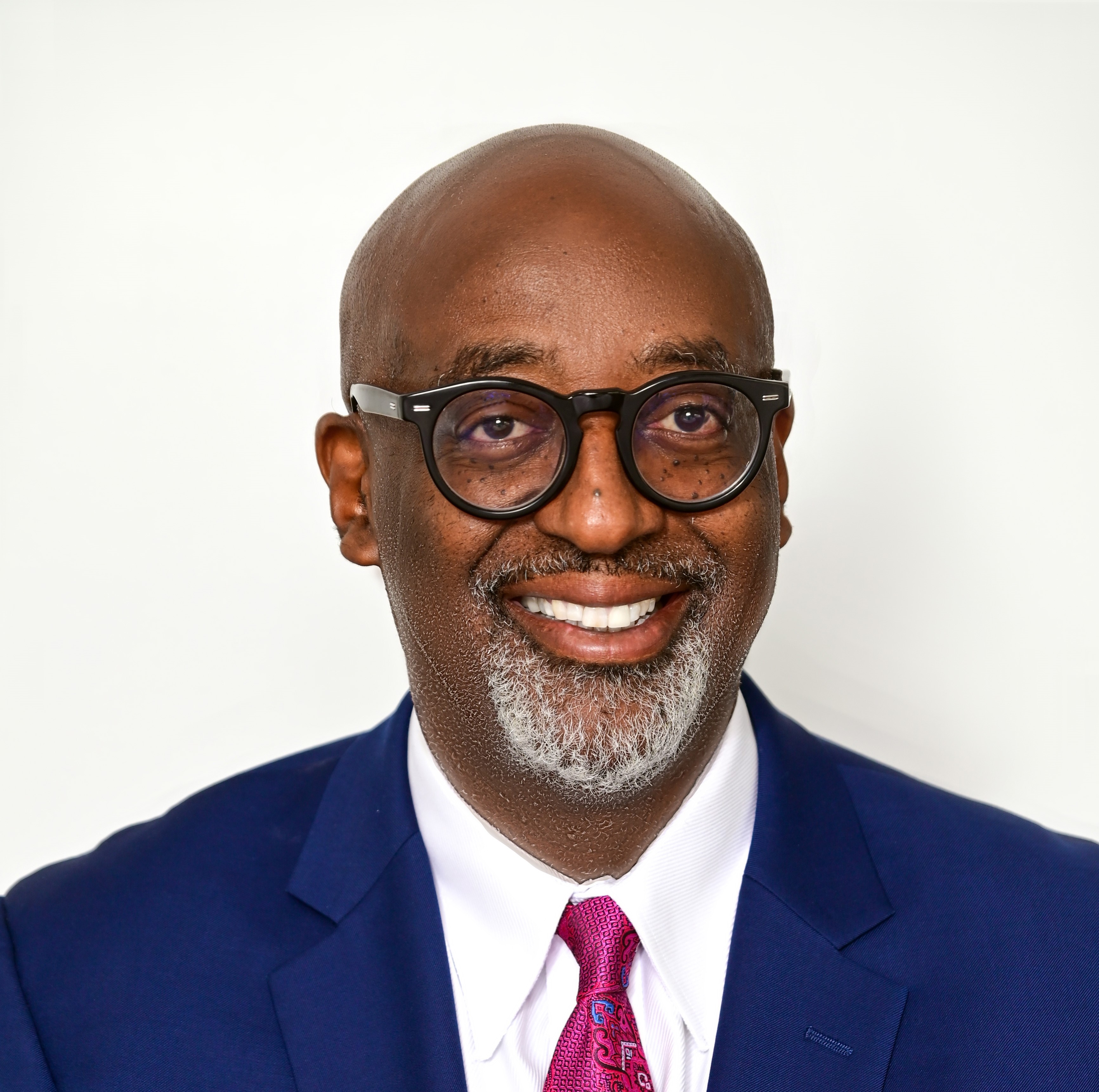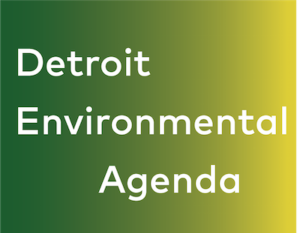Anthony Adams
Candidate for Mayor

Q: Where can people go to learn more about your biography? If not readily available online, please describe in 150 words or less, your relevant experience, public offices held (if any), involvement in environmental causes, and membership in any environmental organizations. If you currently hold office, describe any votes or actions demonstrating concern for the environment.
A: Dedicated public servant with a track record for managing large complex organizations. Key player in leading recycling efforts in Detroit, although stewardship of Greater Detroit Resource Recovery Authority caused issues with environmentalists. Have grown in understanding issues associated with discharge of toxins in the environment. Worked with community organizations to fight modifications of discharge permits in the development of the Chrysler Plant expansion. AnthonyAdamsforMayor.com
Community
Q: If elected, how will you work with Detroit residents to ensure that they benefit from and partake in the decision-making surrounding local development projects and that potential adverse impacts of those projects are identified, measured, monitored and mitigated? Moreover, how would you work to put more power into the hands of residents to maintain and revitalize their own communities and to access vacant land through the DLBA?
A: Community residents have been taken out of the development decision-making process. My plans include empowering community residents into all aspects of the process to ensure they have a place at the table. That is my reputation. DLBA will be disbanded in 2020 as authorized by law. Community residents will be given first dibs on land in their community. Community benefit agreements will be strengthened at the Executive level of the City.
Q: If elected, what budget appropriations would you propose to increase investment in needed social and environmental services to help improve the quality of life and health of Detroit residents?
A: Budget appropriations must be reallocated to increase investment in the quality of life and health of Detroit residents. This would include allocating more dollars to address quality of life issues surrounding housing, public health and recreation. Recognizing that public health of residents is of paramount importance, a portion of the city’s general fund would be allocated to increase dollars available to attack these problems above and go beyond basic grant funding received from federal and state governments.
There is also a need to allocate dollars to facilitate the robust development of quality educational facilities to improve learning. This would include improving funding for our libraries by eliminating the arbitrary tax capture which cripples their operation. The focus must be on promoting projects, and developments which focus on and impact the way we live.
A major part of the problem with development in Detroit is that residents have been taken out of the decision-making process. My plan includes empowering community residents into all aspects of the process to ensure they have a place at the table to promote quality environments where they live.
The City can no longer be a hindrance to the stabilization of neighborhoods and the development of affordable housing. The focus must always be on stabilizing the homes of existing residents. This includes providing relief to repair porches, roofs, painting, siding and furnaces so that more blight is not created by more people vacating their homes because they cannot fix their current home. Preserving homeowners is the best blight removal strategy we have. This would improve the overall health of neighborhoods.
Land must be quickly repurposed into the hands of those who are current owners and real community development corporations(“CDCs”) to increase ownership of land in critical development areas. The idea is to push ownership of land into the hands of those that own property, both residents and community CDCs, into targeted areas to push development into those areas where land is not as much in demand yet has value. This approach has a way of spreading development to those areas that would normally be overlooked. This allows for targeted growth throughout the entire city.
In addition, property reassessment must also be undertaken to reduce the tax burden of those that own homes. The University of Chicago study by Professor Bernadette Athuene clearly establishes that property tax burden is not fair and needs to be reformed. The DBLA will ultimately be abolished to bring this function back in house following an aggressive period of reducing its inventory through a more deliberate transfer of ownership. The focus will no longer be on Midtown and Downtown, but areas outside the central city core. This includes prioritizing the use of affordable housing dollars for real affordable housing and not mixed finance developments that proliferate in the Central Core. To the extent that existing developments have vacancies, pressure will be applied to house folks at income levels below that which was specified in the development agreement to increase diversity of housing in the central core. Homeownership will be a clear focus of my administration’s efforts.
Health, social service and recreational services must also be integrated into neighborhood development. To the extent that affordable housing development is subsidized, then additional spaces must be incorporated into the design and paid for using subsidies.
We must always change the paradigm on how we police ourselves. I have called for the creation of community intervention specialist positions within DPD to take over the execution of several police functions such as mental health runs, homelessness, vagrancy, prostitution, certain types of drug cases and certain gang de-escalation interventions. This will allow for diversion of resources and manpower to handle issues not associated with the enforcement of serious criminal justice issues. By intervening on the front end to engage people with issues, the ideal is that issues will be addressed upstream, reducing actual calls for service on the police which would lead to a reduction in the public safety budget, increase public safety by providing alternatives to police and provide for better health outcomes.
Public Health
Q: What long term solutions do you see for addressing vehicle speeds and making our streets safer?
A: We need to create a facility to allow for drag racing and drifting in the city. Cultures cannot be broken overnight. We need to provide a safe space for this type of activity. I will work with motorcycle and car clubs to promote safe driving in the city. Enforcement efforts will be directed at repeating offenders. Seizure of vehicles– with due process– will be employed.
Q: How will you work to reduce the negative health impacts of air quality on the residents of Detroit?
A: I will not allow for expansion of existing air discharge permits. I will also work to reduce existing permits to lower discharge levels.
Q: If elected, what actions will you take to work toward safer, healthier, and more affordable housing for all Detroiters?
A: Affordable housing dollars will go towards real affordable housing projects. I will dramatically reduce the use of mixed income projects with minimal affordable housing units in the city. My vision is to create more affordable housing and homeownership projects in the city.
Energy
Q: What are your priorities to reduce emissions and lessen the impacts of climate change in Detroit during your term in office?
A: I can support the Greenhouse Gas Ordinance. The City also needs DTE to invest more in protecting/redeveloping its infrastructure in Detroit.The City must be a leader in energy efficiency and conservation. This includes utilizing the City’s massive infrastructure with renewable energy technologies. City should also utilize alternative technologies in the heating and cooling of its buildings including geothermal technologies. The city can also use the rooftops of buildings to maximize the use of green technology- tree planting– to reduce the overall temperature of neighborhoods.
The City should also be much more aggressive in the retrofitting of homes in the city with energy efficiency technologies. This includes pressing DTE to expand low-income assistance to residents in the city to swap out old appliances.
The city also can effectively manage its energy use through staggered work periods and reducing peak period utilization of energy through adjustment of work schedules. Allowing employees to work from home should be encouraged to reduce office utilization and energy expenditures on a large scale.
The City must also take the lead to modernize its massive fleet to reduce greenhouse gas. This would include the use of more electric vehicles and smaller modalities of transporting people across the region to and from work.
Q: What are your plans for helping the city transition to renewable energy and how will you ensure that the cost benefits and increased resilience that come from the use of renewables is made accessible to low-income and vulnerable communities across Detroit?
A: We need to begin the transition to more environmentally friendly vehicles in the city’s fleet. Also, we need to begin increasing the renewable infrastructure footprint in the city. Benefits to low- income residents include more mobility options to increase mobility throughout the city.
Recycling
Q: How can the city increase recycling, composting, and the use of post-consumer recycled materials, while addressing the city’s litter and illegal dumping problem?
A: We need to move towards creating a green infrastructure plan which encompasses the use of public facilities to create composting and recycling facilities. I can see using what I call an environmental corps to go throughout the city to work to clean up the city. More recycling bins need to be placed around the city.
Jobs
Q: What steps would you take to prepare the local workforce to take advantage of and be part of the movement toward a green economy, through qualifying for good paying infrastructure and clean energy jobs, amongst others?
A: DESC needs to be retooled to provide tax benefits/subsidies for companies that promote a green environment. The Detroit Health Department needs to be focused on addressing environmental issues which impact the public health of Detroit residents. Income support ( Guaranteed Basic Income) is on the table to further develop this initiative.
Water
Q: How will you ensure that clean water is accessible and affordable to all Detroiters?
A: Environmentally friendly DWSD Director will be promoted. Big push to replace lead service lines and small level detention ponds on both commercial and residential housing to reduce drainage fees assessed will also be undertaken. I have been a proponent of water affordability.
Q: How will you help municipal agencies and property owners integrate Green Stormwater Infrastructure (GSI) across the city to manage stormwater and reduce drainage charge fees for property owners?
A: Infrastructure management–curb replacement, stormwater management — would be integrated into street design. Parks will be used as conservation districts to divert water out of the sewer system.
Optional
Q: Please identify the top environmental concerns to you personally, identify the environmental issue in your community that is the most pressing, and what you would like to do as an elected official to address this most pressing concern.
A: Address stormwater management, discharge of pollutants in the air, and reducing greenhouse gas impact through the use of renewable energy vehicles. I will integrate storm water management to create more conservation districts throughout the city, enact policies designed to reduce air discharges in Detroit, and move to increase renewable energy fleet.

